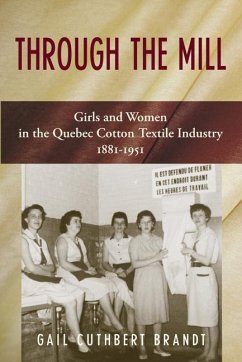Girls and women played an important role in the industrialization of Canada--particularly in the cotton textile industry concentrated in Quebec. Until the end of World War I, they accounted for more than half of the workers who toiled in the province's cotton mills. Contrary to conventional wisdom that women were most often quiescent, short-term workers who undercut unions' organizing efforts, female cotton workers demonstrated remarkable levels of labor activism and militancy across time. Through their participation and their changing roles within working-class families, these girls and women were instrumental in helping to transform Quebec into the increasingly modern industrial society associated with the Quiet Revolution. Central to the author's research are 84 oral interviews with women workers who were employed in two important manufacturing centers, Valleyfield and Magog. Complementing the rich body of information obtained from the interviews, the author has used an array of primary and secondary sources to explore the textile companies' motivation for employing girls and women, their recruiting methods, the demographic composition of the labor force, and working conditions. Patterns of continuity and change are examined within the context of prevailing economic conditions, cultural and social attitudes, and technological developments. Through The Mill, one of few in-depth studies of the lives of women industrial workers in Canada, is an invaluable contribution to feminist labor history.
Hinweis: Dieser Artikel kann nur an eine deutsche Lieferadresse ausgeliefert werden.
Hinweis: Dieser Artikel kann nur an eine deutsche Lieferadresse ausgeliefert werden.








